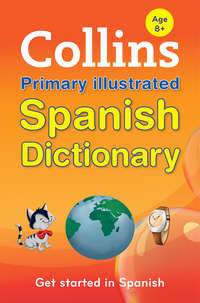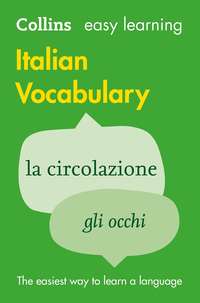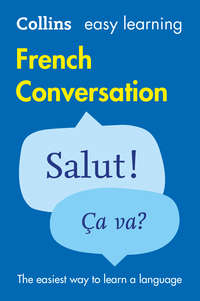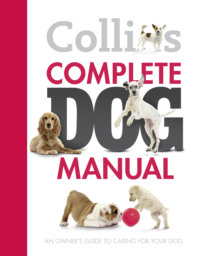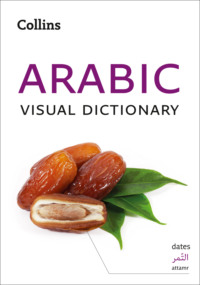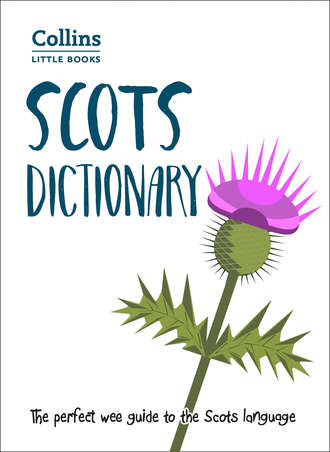
Полная версия
Scots Dictionary: The perfect wee guide to the Scots language


Copyright
HarperCollins Publishers
Westerhill Road
Bishopbriggs
Glasgow
G64 2QT
First edition 2018
First published in this format 2018
© HarperCollins Publishers 1995, 2014
Collins® and Collins Gem® are registered trademarks of HarperCollins Publishers Limited
www.collinsdictionary.com
www.collins.co.uk
A catalogue record for this book is available from the British Library
Editor Ian Brookes
Acknowledgements
We would like to thank those authors and publishers who kindly gave permission for copyright material to be used in the Collins Corpus. We would also like to thank Times Newspapers Ltd for providing valuable data.
All rights reserved under International and Pan-American Copyright Conventions. By payment of the required fees, you have been granted the non-exclusive, non-transferable right to access and read the text of this e-book on screen. No part of this text may be reproduced, transmitted, downloaded, decompiled, reverse engineered, or stored in or introduced into any information storage and retrieval system, in any form or by any means, whether electronic or mechanical, now known or hereafter invented, without the express written permission of HarperCollins.
Entered words that we have reason to believe constitute trademarks have been designated as such. However, neither the presence nor absence of such designation should be regarded as affecting the legal status of any trademark.
HarperCollins does not warrant that www.collinsdictionary.com, www.collins.co.uk or any other website mentioned in this title will be provided uninterrupted, that any website will be error free, that defects will be corrected, or that the website or the server that makes it available are free of viruses or bugs. For full terms and conditions please refer to the site terms provided on the website.
Source ISBN: 978-0-00-828552-4
Ebook Edition © July 2018 ISBN: 9780008285531
Version 2018-07-16
HarperCollinsPublishers has made every reasonable effort to ensure that any picture content and written content in this ebook has been included or removed in accordance with the contractual and technological constraints in operation at the time of publication.
Contents
Cover
Title Page
Copyright
Introduction
About this book
What is in this Dictionary?
The History of Scots
The Dialects of Scots
The Vocabulary of Scots
Using this book
Scots Dictionary
A
B
C
D
E
F
G
H
I
J
K
L
M
N
O
P
Q
R
S
T
U
V
W
Y
Z
About the Publisher
Introduction
This book was first published in 1995 as Collins Gem Scots Dictionary, with the aim of providing a handy and accurate guide to the words and phrases used in contemporary Scotland. Many things have changed in Scotland since the publication of the first edition: the political map of the country has been literally redrawn, with single-tier council areas replacing a two-tier system based on regions and districts; more dramatically, the Scotland Act of 1998 established a new devolved Scottish parliament in Edinburgh, with its own headquarters and distinctive ways of operating. These developments – as well as changes in other Scottish institutions – have introduced a number of new words into the everyday language of Scottish people, while rendering other terms redundant, and this edition of the dictionary has been revised to include important new words and phrases and remain a reliable guide to modern Scots.
About this Book
The Little Book of Scots is a dictionary of living Scots; but both “living” and “Scots” are terms which need some clarification. By “living” we mean that the words and terms defined are either in current everyday spoken or written use, or are readily familiar to Scottish people.
By “Scots” we mean the language of Germanic origin spoken by most Scots which is neither standard British English nor general slang.
Over the years, a great deal of excellent lexicographical work has been done on literary and historical Scots; and in recent years a number of smaller scale dictionaries dealing with the contemporary speech of various regions of Scotland have appeared. The aim of this book is to survey the modern colloquial language of Scotland as a whole, while not neglecting vital archaic or formal terms.
What is in this Dictionary?
This book covers three main types of vocabulary: everyday language, official and technical language, and literary language.
Everyday language. This consists of the words and phrases which people use in normal informal conversation. Some of these are used almost universally in Scotland, others only by people who speak broader forms of Scots rather than “Scottish English”, and others are restricted to one part of the country. It is highly unlikely that any one person would use all the words in this book as part of their natural language. Where we believe that a term is regional, we have indicated this in the entry.
Dialects have been covered according to the number of speakers they have: roughly a quarter of the population of Scotland lives within twenty miles of central Glasgow, and the language of urban West Central Scotland is therefore dealt with in more depth than the language of Caithness or the Borders. (West Central Scots is also the dialect most often heard on television, whether in comedies or in detective series.) This is not to say that one dialect is better Scots than another, simply that some are more widely spoken than others.
Official and technical terms. Scotland has its own distinctive systems of law, religion, education, and government, and each of these systems has its own terminology. Many of these terms are included. Also included are words to do with specific Scottish activities such as whisky-making, shinty, and piping.
Literary Scots. Different writers have used Scots in different ways. Some have written in what is more or less standard literary English, with a sprinkling of Scots words and idioms. Others have chosen to write using a language based on the speech of one particular area, be it Glasgow, Edinburgh, or the rural Northeast. Yet others have attempted to create a modern literary Scots by using words from all parts of the country and, where necessary, going back to the language of Scots writers of the past for vocabulary. The objection often raised to this approach is that the result is far removed from the natural speech of any person from any part of the country. This split between literary and colloquial language is not unique to Scots – as the Scots language poet Sydney Goodsir Smith pointed out, “wha the deil spoke like King Lear?” – but because the standard written language of Scotland for the past three centuries has been English, the difference is particularly noticeable in Scots. For reasons of space only the most basic literary Scots has been included.
The History of Scots
When the Angles, Jutes, and Saxons began to settle in Britain from the fourth century on, they brought with them their own Germanic dialects, and these became Old English, the language of the parts of England and Southern Scotland under Anglo-Saxon rule. This eventually developed into what is known as Middle English. Over the centuries, as the Scottish and English states emerged as unitary wholes, and followed their own historical paths, a language based on the Northumbrian dialect of Middle English (that spoken North of the Humber) emerged as one of the standard languages of Scotland. It is ultimately from this that modern Scots is descended. Scots has always tended to define itself in terms of what it isn’t: this early Anglo-Saxon derived tongue, initially only spoken in Southeast Scotland, was known as Inglis, to distinguish it from the Gaelic spoken in the Highlands and parts of Southwest Scotland, the Welsh-related language of much of West Central Scotland, the Pictish of the Northeast, and the Norse of the Islands and the Far North. Only later, when it had emerged as the chief administrative and spoken language of Scotland (although Gaelic remained in widespread use), did it became known as Scots to distinguish it from the separate but closely related tongue of England.
Over the years, Scots has been much influenced by the English of England. Indeed, there has never really been a complete split: many Northern English dialects have descended from the same Northumbrian roots as Scots, with words such as bairn (a child or baby), fell (a mountain or hill), and flit (to move house) being found in Scots and Northern English alike. The main literary and political language of England (so-called Standard English), however, was one based on the East Midlands dialect spoken in London.
For many centuries, Scots and English developed in parallel: but the decision of the Church of Scotland to adopt a version of the Bible in English rather than in Scots following the Reformation, and the Union first of the Scottish and English crowns and later of the Scottish and English parliaments, meant that Scots came to have less and less social status. Many members of the Scottish nobility and middle-classes, eager to prove themselves good North Britons, made strenuous efforts to avoid all Scottish idioms and pronunciations.
But despite these attempts, Scots has remained in constant use, if mainly as a spoken language. The language of modern Scotland remains distinct from that of England, with its own words, idioms, and grammar. A typical recent edition of one of the Scottish national newspapers, for instance, mentions a depute fiscal at a Sheriff Court, a wasp’s bike, and a Church of Scotland clergyman who had demitted his post as a minister; Scottish greengrocers sell syboes; and in Scotland’s pubs, drinkers continue to get guttered on pints of heavy and wee goldies.
It should also be noted that the trade between Scots and English has not all been one way: such commonplace English words as cuddle, eerie, and greed were originally Scots.
The Dialects of Scots
Most authorities divide Scots into four groups of dialects, the larger of which have major subdivisions. There are many more subtle changes of dialect than can be covered here, and, particularly in areas where the majority of the population have lived locally all their lives, many people can distinguish between the speech of people from one town or village and their neighbours from a nearby area.
Central Scots, despite its name, is spoken throughout the area south and west of the Tay, with the exception of a small area in the Borders and Eastern Dumfriesshire. It is the most widely spoken form of Scots, and can be divided into East Central Scots, West Central Scots, and Southwestern Scots. One of the chief differences between them is that the vowel sound in words such as a’, cauld, and wa (all, cold, and wall) is pronounced aw in the West and ah elsewhere. Throughout the Central Scots area, the -u- or -ui- or -oo- vowel in words such as guid (good), school, or moon is usually pronounced -i- (as in English hid).
Northern Scots is the other main form of Scots, within which Northeastern Scots, spoken in the area north of Stonehaven and East of Inverness, forms a distinct dialect. The most immediately obvious feature of Northern Scots is that wh- at the beginning of a word is usually pronounced f-, for instance in fit (what) or fite (white). The vowel in guid, school, and moon is generally pronounced with an -ee- (as in English heed), but in the Northeast when this sound follows a hard g or k it is pronounced -wee- (gweed, skweel). All forms of Northern Scots frequently drop the initial thin words such as the, this, and that. A noticeable grammatical feature of Northern dialects is the tendency to use this and that instead of these and those when referring to more than one person or thing: did you see that two mannies?
Island Scots. Orkney and Shetland formerly spoke a Scandinavian language known as Norn which had been superseded by Scots by the end of the 18th century. However many Norn words, such as voe (a narrow bay) have survived into the present-day dialects. Other distinctive features of Orkney and Shetland dialects are the preservation of the distinction between the formal you and the informal thou, and the pronunciation of th as d or t, as in tink (think), blide (blithe, happy), or da (the).
Southern Scots is spoken in Eastern Dumfriesshire and along most of the Border. Its speakers tend to say -ow and -ey at the ends of words, where people from elsewhere in Scotland would say -oo and -ee. It is sometimes referred to as the “yow and mey” dialect as a result.
The Highlands and the Western Isles, where Gaelic was (and some times still is) the main language, are generally described as speaking Highland English rather than Scots, although many Scottish words are in common use there.
The Vocabulary of Scots
The different histories of Scotland and England have meant that Scots and English have not only emerged from different Germanic dialects, but have absorbed words from different sources.
Much of Northern and Eastern Scotland was settled by the Vikings, and their Old Norse tongue has contributed terms such as kirk (church), brig (bridge), and lowp (leap), some of which also exist in Northern English.
Later, political and trading alliances with France provided words like ashet (a type of plate), fash (to bother or annoy), and gigot (a cut of meat).
Other trade links with the Netherlands endowed Scots, particularly its Eastern dialects, with a number of words, with howff (a pub), loon (a boy or young man), and pinkie (the little finger) all coming from Dutch or Flemish.
Gaelic was formerly much more widely spoken than it is today, and many words have passed from it into Scots. Some words, such as glen (a narrow valley), keelie (a generally derogatory term for an urban working-class man), and partan (a crab), are general Scots, others, such as bourach (a heap or a mess), cailleach (an old woman), and laroch (a ruin) are restricted to areas in the North or West where Gaelic was historically strongest or where there has been large-scale immigration from Gaelic-speaking areas.
Scots also shares a number of words, such as hooley (a wild party), with Irish English: over the centuries there has been a long tradition of migration between the two countries, to the extent that dialectologists regard the language of some parts of Northeastern Ireland as “Ulster Scots” rather than a dialect of Irish English.
Lastly, there are a number of words that have come into Scots, and particularly its Eastern and Northern dialects, from the language of the travelling people, for example barrie (excellent) and gadgie (a man or youth).
Using this book
Headwords are shown in bold.
Variant Spellings. Modern Scots is more often spoken than written, and many words therefore have variant spellings based on the writer’s attempt to represent his or her pronunctiation of the word. The main entry for a word can be found at the spelling which we believe is most common in current use. We have tried to minimize the number of variants shown to make the text easier to follow, but where a number of spellings are in common use, the most common variant (or variants) is shown after the headword. For example:
cock-a-leekie or cockie-leekie Cock-a-leekie is soup made from a fowl boiled with leeks. Some recipes include prunes.
fae (fay) or frae (fray) Fae means from: some guy fae Tollcross; Where’d he get that fae?
The variant form is given an entry of its own, referring the reader to the main entry, unless the variant would come within five entries of the headword. Hence, there is an entry for frae but not one for cockieleekie:
frae (fray) A variant of fae.
Pronunciations are given for words which might be difficult or confusing for the non-Scots speaker. They are shown either by respelling, with the stressed syllable in bold, or by rhyming them with a word with a similar pronunciation.
ca’ or caa (caw) …
caber (rhymes with labour) …
ceilidh (kale-ee) …
There are a number of regional variations in pronunciation in Scotland: in general the form shown is a West Central Scotland one, that being the most widely spoken dialect, but where a word is most common in a particular area, the pronunciation appropriate to that region is given.
Where more than one way of pronouncing a word is in widespread use, all these pronunciations are shown.
dicht (diCHt or dite) …
In respellings, each syllable has been shown in a form likely to be clear to all speakers of British English. However, the following points should be noted:
g always represents the hard “g” in gun, never the soft “g” in gin
ch represents the “ch” in cheese or church
CH represents the guttural sound represented by the “ch” in the Scots loch and in the German composer Bach
th represents the unvoiced “th” in thin, three, or bath
TH represents the voiced “th” in this, father, or bathe
iy represents a vowel sound used in Scots but not in English. It is the vowel in the normal Scottish pronunciation of bite, pronounced a bit like “eye” but shorter. It is used in the Scots pronunciation of Fife and tide, as distinct from the longer vowel in Five and tied
wh: words which, in southern English, start “wh-” but are pronounced as if they started “w-” (for example, what, white) are always pronounced with an initial “wh” sound in Scots. This sound is rather like the “h” in hit and the “w” in wit pronounced almost simultaneously
A
a’, aa or aw (aw) A’ means all: It’s a’ the same tae me.
Aberdeen Angus Aberdeen Angus is a breed of black hornless beef cattle originally bred in Aberdeenshire and Angus.
Aberdeenshire (ab-er-dean-sher or ab-er-dean-shire) Aberdeenshire is a historic county in Northeast Scotland. It is now the name of a council area encompassing the old county (except for the city of Aberdeen) plus Kincardine and most of Banff.
Aberdonian An Aberdonian is a person from Aberdeen. The dialect of Scots spoken in Aberdeen is also called Aberdonian. Something which is Aberdonian comes from, or is typical of, Aberdeen.
ablow (a-blow) Ablow means below: in ablow the sink.
a’body (aw-bid-ee) In some parts of Northeast Scotland, a’body means everybody: Ssh! We don’t want a’body to know aboot it!
aboot (a-boot) Aboot means about: That’s aa you incomers go on aboot.
abune (a-bin) or abeen (a-been) Abune means above.
academy In Scotland, some secondary schools are known as academies. Originally, an academy was a public or private school in a burgh: Bathgate Academy; St Margaret’s Academy.
Accies
Accies Accies is an informal way of referring to a sports club with Academicals or Academical in its name, indicating that it was formed by members of an academy: Hamilton Accies.
ach (aCH) Ach is an expression of surprise, disgust, or resignation: Ach, you don’t really notice the smell after a while.
act it To act it is to behave in a misleadingly innocent way: He’s acting it if he says he didn’t know.
Adam An Adam house, interior, piece of furniture, etc., is one designed by the architect and decorator Robert Adam (1728–92): a grand Adam mansion in Charlotte Street. Adam successfully emulated the harmony and grace of classical and Italian Renaissance architecture in the many British country houses he and his brother James (1732–94) built. His greatest Neo-Classical work is undoubtedly Charlotte Square (1791) in Edinburgh. The exterior of Culzean Castle in Ayrshire is a good example of his work in the Gothic Revival style.
Advanced Higher An Advanced Higher is the highest exam or qualification of the Scottish Qualifications Certificate, usually taken after the sixth year of secondary school, at the age of 17 or 18, a year after Highers: She achieved an A in Advanced Higher Music.
advocate An advocate is a lawyer who has passed certain extra exams and is permitted to plead in the High Court. The English equivalent is a barrister.
Advocate Depute An Advocate Depute is a law officer who prosecutes in important cases on behalf of the Lord Advocate. The English equivalent is a public prosecutor: The Advocate Depute asked him if he was aware of the possible consequences of telling lies on oath.
ae (rhymes with bay) Ae means one or a single: ae fond kiss.
aff 1 Aff means off: Get aff the grass! 2 Aff also means from: I got it aff ma sister.
afore (a-fore) Afore means before: I’ll get home afore you. Afore also means in front of.




